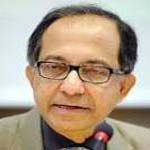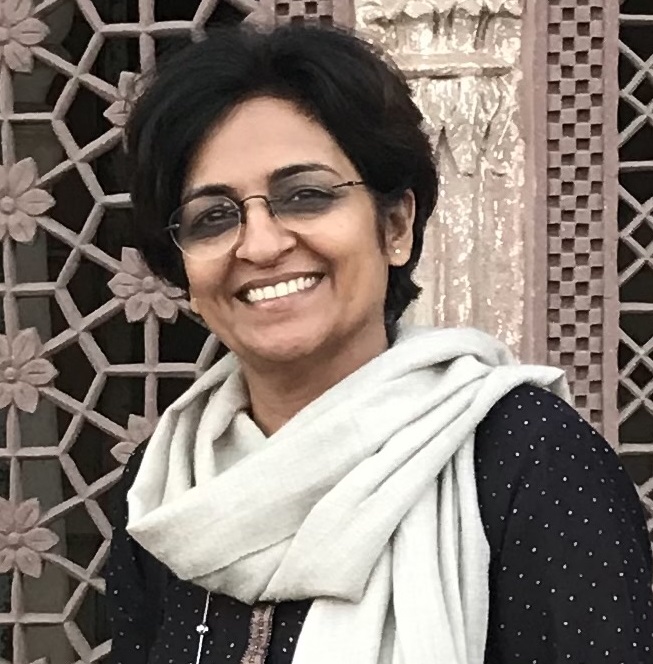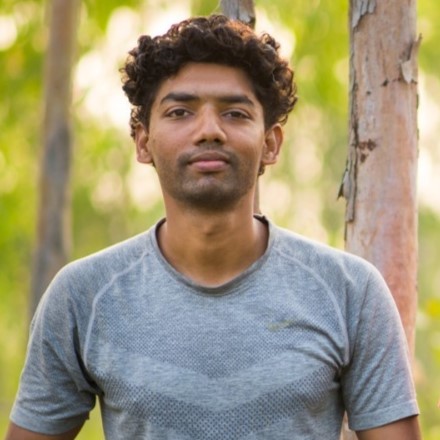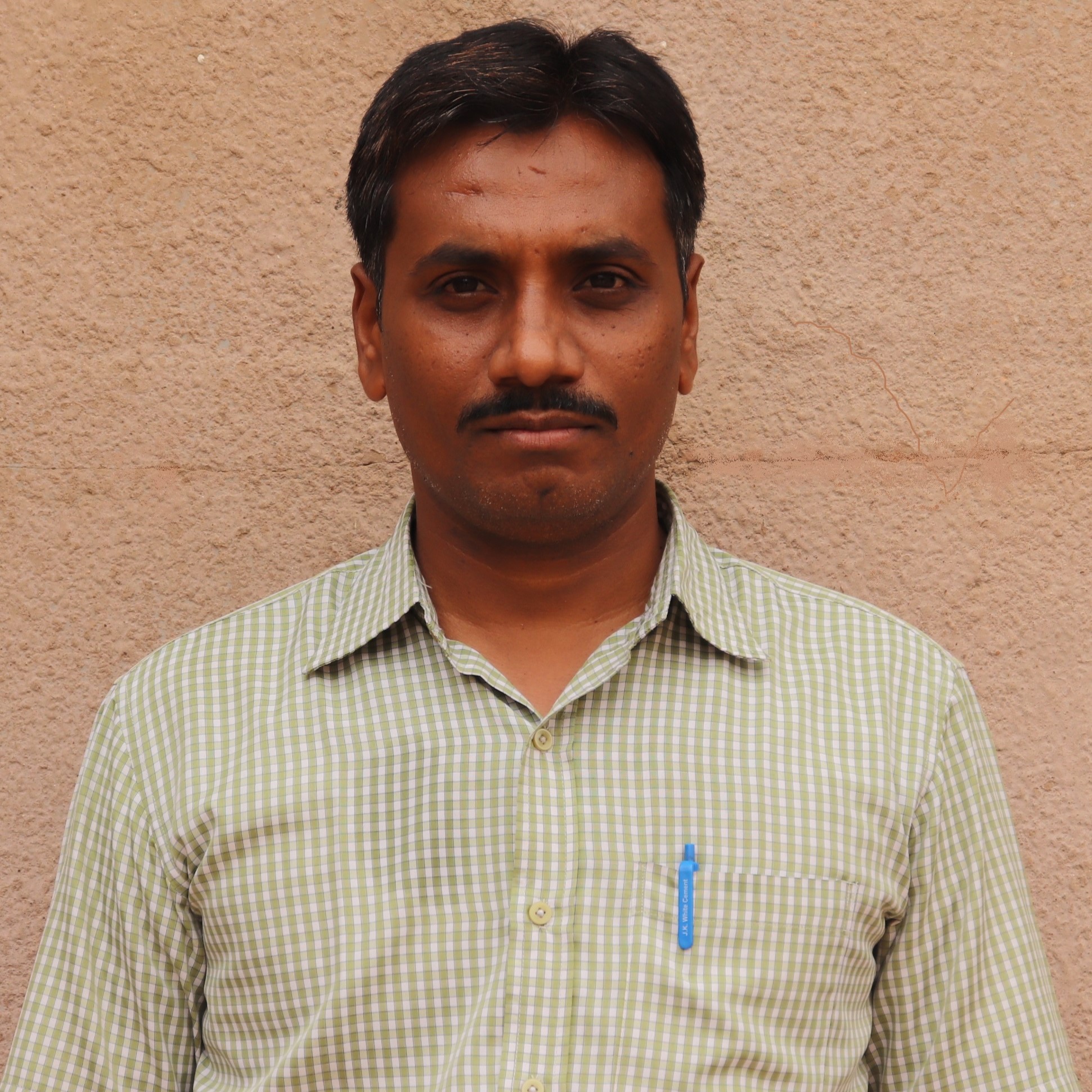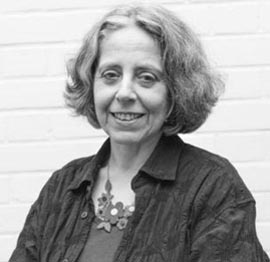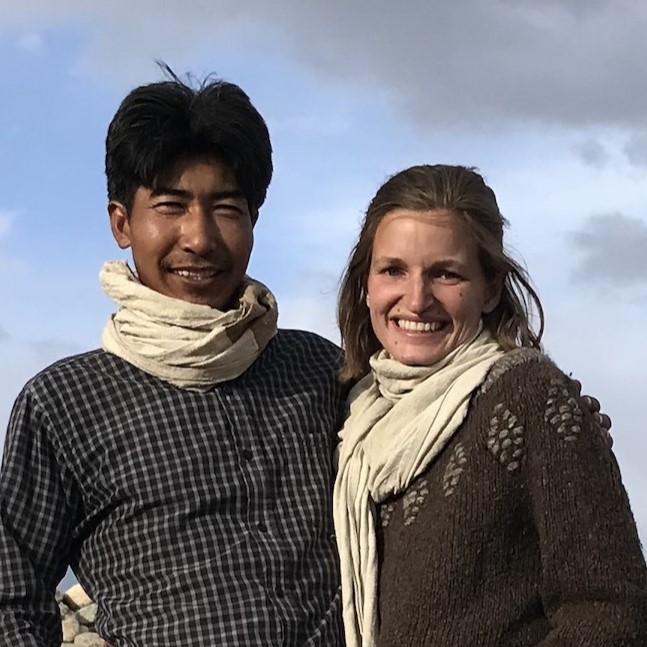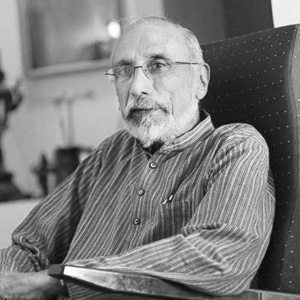JOURNAL ARCHIVE
Debanjali Banerjee, PhD in Textile/Color Chemistry in Natural dyes, Jadavpur University, Kolkata, with a Masters in Textile and Clothing from S.N.D.T. Women’s University, Mumbai, with NET (Research & Teaching). Currently an Assistant Professor with National Institute of Fashion Technology, Kolkata, earlier with Jadavpur University, Kolkata in Chemical Engineering Department as Assistant Professor. She has been visiting faculty at Apparel Export Promotion Council, Kolkata and J. D. Birla Institute, Kolkata, also worked with Bombay Textile Research Association, Mumbai. Coordinated projects in the field of Science and Technology, Survey and Auditing programs, pattern developments, color matching. She worked on projects funded by UGC, CSIR and DST. With published papers in National and International Journals, she is a member of several prestigious bodies. Her research interest includes Indian traditional textiles, blending with modern trends, using traditional natural dyes, research and development, commercialization of research project, Her works include Herbal Gulal from natural colors, Natural Colors from waste flowers, Cosmetics using natural products and other medicinal research. She has conducted workshop for artisan groups and weavers.
Dr. Kaushik Basu is a Professor of Economics, the C. Marks Professor of International Studies and Director of the Program on Comparative Economic Development at Cornell University. He is a development economist whose current research focuses on political economy, knowledge and rationality and labor markets in developing countries. Dr. Basu is a member of the advisory committee on child labor statistics for the International Labour Organization (ILO). He also served as a member of the Expert Group on Development Issues for the Government of Sweden, Ministry of Foreign Affairs during 1997-2003. Prior to this, Dr. Basu was the Founder (1992) and Executive Director (1992-1996) of the Centre for Development Economics at the Delhi School of Economics in Delhi. He is the editor of Social Choice and Welfare and has been an associate editor for the Journal of Economic Perspectives and the Journal of Development Economics, along with editorial positions with a number of other journals and publications. From 1994-2003, he served as an associate editor of the World Bank Economic Review. Dr. Basu' most recent publications are India's Emerging Economy: Performance and Prospects in the 1990s and Beyond and Collected Theoretical Papers in Economics, 2 Vols. He currently writes a monthly column for BBC News Online.
Axel Fredrik Becker trained as a graphic artist, illustrator and art teacher. Instructor in Qigong and meditation as well. Works as artisan and designer with fabric print and Indigo dyeing. He runs his own textile print workshop and Indigo dye workshop since 1990 and combines the traditional techniques with modern designs. The only practitioner in Scandinavia. He cooperates with Aranya Natural in Munnar and Avani Kumaon, sharing and bringing back the knowledge which once was imported from India to Europe about 150 years ago.
Simmi Bhagat is Professor, Department of Fabric and Apparel Science, Lady Irwin College, Delhi University. She earned her PhD degree from the University of Delhi besides undergoing training in ‘Textile Conservation’ from Opificio delle Pietre Dure, Florence, Italy. She has spent over 30 years in teaching, research. While also working in community outreach assisting in community efforts in improving skills of women for income generation, and training differently-abled candidates in embroidery skill for participation in International abilympics in France. She has undertaken projects with DC (Handlooms) Ministry of Textiles, ILO, Delhi University Innovation projects, National Abilympics Association of India and Department of Science and Technology. She is the founding member of Textiles and Clothing Research Centre and serves on the Board of studies of reputed National Institutions. She has supervised over 40 Master’s dissertation and 10 PhDs in Historic costumes, World textiles, Textile Conservation, Fashion, New fibre development, Natural dyes and Carbon Footprint. She has presented papers in conferences and seminars, published papers in journals, and chapters in various books. She has delivered lectures and conducted workshops in Textile Conservation in various Institutes in India, and conducted a workshop on 'Understanding Design through Illustration' in Royal University for Women, Bahrain.
Vishal C. Bhand is Head and Associate Professor in Design at Silpa Sadana, School of Craft and Design at Visva Bharati University, Santiniketan. He has designed several courses on cultural practices and design process and closely worked with craftspeople in the area of wood, textiles, metal, ceramics and leather. He is a widely travelled scholar with keen interest in Indian art and craft.
Vidyadhar Bhandare completed his masters from National Institute of design Ahmedabad and his engineering in automobile design from RMIT-Satara. He possesses expert knowledge in fabrication and quality control and helped multiple automobile startups in design and manufacturing prior to cofounding Earthen Tunes. He has also helped design modern seating for Indian Railways via the Railway Design Centre-Ahmedabad and has also won multiple awards such as the Nissan mobility award for his work in sustainable mobility. Apart from being an Entrepreneur, Vidyadhar is also an expert Barista and state level Swimming champion
Bhargava, Gayatri have completed her course with the Indian Institute of Crafts and Design, Jaipur. She specialized in 2-D materials.
Rashmi Bharti has been working with issues related to rural development for the past 15 years. Avani the voluntary organisation she co-founded works with the creation of livelihood opportunities through appropriate technology, traditional craft and farm-based activities. Avani has worked with local capacity building for management of all these enterprises. In the past ten years of their work they have set up, among others, a community managed rural solar electrification program; rural electronic and mechanical workshop that manufactures solar water heaters as well as solar driers; a profitable business with handmade, high quality textiles in wool and silk dyed with natural dyes; cultivation of wild silks like eri and muga; collection and cultivation of natural dyes.
Anuradha Bhasin is an independent consultant working on the areas of trade and development issues.
Jyoti Bhasin is presently Senior Faculty in the Centre for Retail, Footwear Design and Development Institute, Noida, An M.Sc. (Home Science), with specialization in Textiles and Clothing, from Lady Irwin College, Delhi University with UGC NET qualification she has had teaching experience with JIMS, as a Faculty and Course- in- charge. Her interests lie in studying Indian traditional textiles, and it’s blending with modern trends. She has published articles and presented paper at conferences.
Sonali Bhasin is a student of Barnard University, New York She has assisted with craft demonstrations organized by CRT. Her long term goal is to teach.
Bimal Bhati, KHAMIR He holds a degree of Bachelor of Textile (Technology). He has work experience of more than 12 years in the weaving production department in Welspun India Limited-Terry towel division. Currently he works with Khamir-an NGO based in Kutch as a part of the development team for the last 6 years. He looks at various technical issues in Kala cotton hand spinning & weaving for craft development. Seeking to use solid organizational and skill to raise possibilities for artisans in the KHADI sector by adopting spinning on Charkha. In west Kutch, he trained 125+ hand spinners till todate, which is the principle of revival of Kala cotton value chain.
Aparna Bhatnagar is Founder Director Green and Good Store, Jaipur, Rajasthan. She is a social entrepreneur and runs “The Green and Good Store, an online store dedicated to promoting “responsible consumerism” in India. Aparna is an alumna of Delhi School of Economics and IIM Ahmedabad and has a keen interest in sustainable development. Her store brings her in contact with artisans from all over India as it attempts to promote traditional knowledge in communities.
Ashwini Bhatt is a Bharatanatyam dancer currently working with Padmini Chettur in Chennai. She also works with children and is interested in music and literature. If we think of craft as skill and dance also as perfection of skill and both steeped in traditional knowledge systems Ashwini is rather concerned with the resistance amongst many practitioners and also consumers of dance to any form of change or experimentation and also the rather disturbing form of commercialisation being adopted for the knowledge to survive. Craft too suffers from this. Ashwini has written a personal piece for our July issue exploring these murky depths.
Bhatt, Jatin, Founder Director of Edusign Consulting Pvt. Ltd.is a 1977 graduate of National Institute of Design (NID) with a specialization in Industrial Design. His new initiative Edusign Consulting (www.edusign.in) is focused on education, training, design & product development from macro strategies to finer details; from process to products. Offering a six months program ‘Curating the Commerce of Crafts’, in collaboration with Dastkar, designed to develop compassionate and informed business leadership based on inclusive practices of partnering with artisan communities. The core of the program is to appreciate and build on unique identities of crafts as a differentiating business strategy. Prof. Bhatt conceived the Accessory Design Department at NIFT as its first indigenous program. The program was pioneering in its industry-academic interface and expanded to five unique specializations in different NIFT centers. He was the Dept. Chair from 1991 to early 2008. With diverse professional design experience in consumer goods, packaging, machine tools, ITES, handicrafts, automobiles, education, training, cluster development and exhibitions he has been involved with various institutions and organizations including IICD Jaipur, Japan Design Foundation, World Gold council, CDI Kashmir, CRC Khamir, Kutch, ICG Jaipur, Pearl Academy of Fashion, New Delhi, UNDP and more in the capacities of founding chair, visiting faculty, external examiner, expert, consultant, advisor, mentor and on the governing bodies. Prof. Bhatt has been a Judge on many national & international competitions and has presented papers as keynote speaker, design expert & design educationist at many forums in India and abroad.
Sandy Black is a designer, author and researcher, and Professor of Fashion and Textile Design and Technology at London College of Fashion (LCF). She joined University of the Arts London (UAL) to develop and direct the college’s first multi-disciplinary MA programme in Fashion Studies, having previously directed the Fashion Textiles BA programme at the University of Brighton. Prior to academia, Sandy was director and designer for the Sandy Black Original Knits fashion knitwear company, selling knitwear and knitting yarn kits to prestigious stores internationally in USA, Canada, UK, Europe, Australia and Japan. Sandy has degrees in both mathematics and design, and researches, writes and lectures on the intersections of textiles, fashion and knitwear design with emerging technology and science in the context of cultural, environmental and economic sustainability. She is a key researcher within UAL’s Centre for Sustainable Fashion at LCF. Her interests are inter-disciplinary, and focus on the role of design in addressing issues of sustainability within the designer fashion and textiles sector. Sandy develops networks and collaborative research projects, aiming to reconcile desirability and fashion with wellbeing and better lives. In 2004-05 she initiated the Interrogating Fashion network (funded under the AHRC/EPSRC Designing for the 21st Century initiative) to create a research agenda for future fashion and subsequently led the project Considerate Design for Personalised Fashion to assist designers in developing personalised fashion products to ultimately reduce fashion consumption but enhance fashion delight. She currently leads the F.I.R.E (Fashion, Innovation, Research, Evolution) series of research projects bridging academic research and designer fashion businesses. Sandy’s publications include: The Sustainable Fashion Handbook, (Thames and Hudson 2012), Knitting: Fashion, Industry, Craft (V&A Publishing 2012) and Eco Chic: the Fashion Paradox (Black Dog Publishing 2008, 2011). She is founder and co-editor of the journal Fashion Practice: design, creative process and the fashion industry (Routledge) now in its 10th year of publication.
Dr. Shernaz Cama has been teaching at Delhi University since 1983 and has been Head, Department of English at Lady Shri Ram College. She has worked on Blake and Zoroastrianism, for her PhD researches at the British Museum and the School of Oriental and African Studies in London. She writes for academic journals and magazines and has been a Resource Person for the Centre for Professional Development in Higher Education, giving lectures at various Universities under this scheme. She has written several books on Blake as well as on Zoroastrian topics and guided senior scholars in research projects. On the invitation of UNESCO Dr. Cama initiated a Project on the Preservation and Promotion of Parsi Zoroastrian Culture and Heritage (Parzor). As Honorary Director of this Project she has recorded Oral Traditions and creating awareness of the rich culture and heritage of this community. She has produced three movies under the project. Dr. Cama has also headed an international six country multinational candidature for the UNESCO award "Masterpieces of the Oral and Intangible Heritage of Humanity", called "Asha: the Law of Harmony - A Study of Environmental Consciousness in Zoroastrian Rituals". Dr. Cama was the Indian Representative for the Navroze multinational candidature file, headed by Iran, which has been declared a Masterpiece of the Oral and Intangible Heritage of Humanity in 2009. Dr. Cama has been awarded the Mazda Education Foundation Award and Mancherji Edalji Joshi Memorial Award for Outstanding Contribution to the Zoroastrian community. She is the Parsi representative for India on the Board of the International interfaith movement, The Temple of Understanding.
Aarti Chandra has done her graduation in English from Delhi University followed by a diploma in Public Relations and Advertising. She has worked as a Manager (Promotions) for a well-known cosmetic group. Presently she freelances as a copy editor of educational books for a reputed publishing house.
Professor Ashoke Chatterjee received his education at Woodstock School (Mussoorie), St Stephen’s College and Miami University (Ohio). He has a background in the engineering industry, international civil service, India Tourism Development Corporation (ITDC), and 25 years in the service of the National Institute of Design (NID, Ahmedabad) where he was Executive Director, Senior Faculty, Distinguished Fellow and Professor of communication and management. He has served a range of development institutions in India and overseas, particularly in the sectors of drinking water, sanitation, disability, livelihoods and education as well as working with artisans in many parts of the country. He was Hon President of the Crafts Council of India for over twenty years and continues to serve CCI. He has been on the board of Aid to Artisans (ATA) in the USA. An author and writer, his books include “Dances of the Golden Hall” on the art of Shanta Rao and “Rising” on empowerment efforts among deprived communities in rural Gujarat. Professor Chatterjee continues to assist design education in India and overseas.
Professor Chatterjee’s association with artisans and the craft sector began during his career with the ITDC, where he helped integrate craft into India’s tourism strategies. During his years at NID, he participated with design teams working throughout India to assist artisans in the transition between traditional and contemporary markets, as well as in efforts at sustainable livelihoods through hand production. With colleagues from NID and the Indian Institute of Management (Ahmedabad), Ashoke Chatterjee contributed to the pioneering Artisans Alliance of Jawaja (AAJ), an association which has continued for almost four decades in a path-breaking experiment toward self-reliance and dignity for communities challenged by discrimination and competition. With CCI and its network throughout India, he has helped pilot a major effort with the Government of India on the understanding of the economics of India’s craft sector, the nation’s second largest source of livelihood after agriculture and yet seriously neglected as an engine of growth. Advocacy for artisans and the critical importance of their sector to national wellbeing now engages much of Professor Chatterjee’s time and attention.

